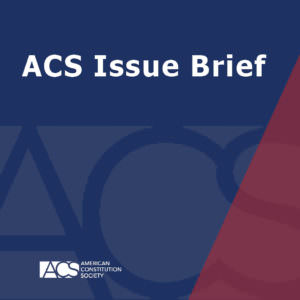The Contraception Mandate Accommodated: Why The RFRA Claim In Zubik V. Burwell Fails
Professor of Law, University of Miami School of Law
Just ahead of oral arguments in Zubik v. Burwell, the challenge to the Affordable Care Act’s contraception benefit that will be argued before the Supreme Court on March 23rd, Caroline Mala Corbin, Professor of Law at the University of Miami School of Law, explains in a new ACS Issue Brief why the RFRA claims asserted by non-profit corporations should fail.
In the issue brief, Corbin points out that the plaintiffs’ religious objections have actually been accommodated in that to be exempted they need only fill out a form advising the government of their objection. “Filing paperwork to obtain a religious exemption,” Corbin argues, “does not constitute a substantial burden on religion. If it did, then almost anything would amount to a substantial religious burden.” Nevertheless, Corbin also assesses the claims under strict scrutiny analysis and concludes that “[g]iven the importance of women’s equal access to essential health care, and the exemption granted to the nonprofits, the mandate does in fact meet the requirements of strict scrutiny….”
Read the full issue brief here: Contraception Mandate Accommodated: Why The RFRA Claim In Zubik V. Burwell Fails
By Caroline Mala Corbin

